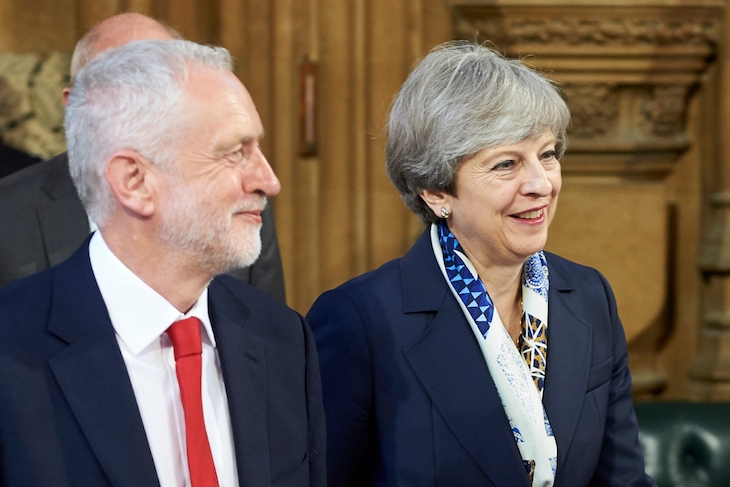As you’d expect on the eve of Tory conference, everyone in the party is offering plenty of advice for Theresa May. Some are tugging the Prime Minister leftwards, while others are fretting that the Conservatives risk abandoning their values. There’s Jacob Rees-Mogg arguing that the Tories need to support the institution of the family, Sam Gyimah worrying that the party has ‘lost our way’ and is both ‘talking business down’ and ‘ignoring the concerns of voters’, Boris Johnson complaining about, well, quite a lot, and Liz Truss saying Labour’s latest PPB ‘does capture the heart of where we need to be as a party’. And it’s not even the real eve of party conference. We’ve got tomorrow and Sunday’s papers to go yet.The debate isn’t just about what Theresa May is doing, though. It’s as much about where the next leader of the party takes things as it is about what May decides to do with however little or much time she has left.
The temptation for May and her successor is to yield still further to the agenda being pushed by the Labour Party. As Truss and others have pointed out, Jeremy Corbyn and his colleagues have gone from being considered totally unelectable to appearing to be able to speak to voters who feel ignored.
But it’s notable that Truss is one of the MPs identifying the danger of Labour: the Chief Secretary for the Treasury is not pushing for Labour-esque policies in any way. She is one of the few ministers who is still talking about the deficit and the need for the Tories to maintain fiscal restraint. And she does not see that as being mutually exclusive with wanting her party to talk to people who feel left behind.
The Tories have made it much harder for themselves by largely forgetting to talk about the deficit over the past few years. Whereas David Cameron and George Osborne were mocked for sounding myopic on the matter, Theresa May and her ministers rarely mention it at all. Those who were in government with Cameron and co argue that this is why Labour is able to pursue its ideas with relative ease, but that’s not fair: there are many policies introduced by that government that have caused misery but not saved money – and this is something that particularly Conservatives in local government agree with.
West Midlands mayor Andy Street, for instance, this week said that ‘the cuts have gone far enough’, and backed local council leaders who complain that they cannot take any more.
As our leading article says this week, the unease with talking about cuts and deficit reduction means that the Tories are far less confident about knocking back Labour’s policy ideas. They don’t feel they have the authority that Cameron and Osborne did to dismiss the Opposition’s plans as unworkable. And the longer they lack confidence, the harder it will be to add a dose of realism into debates about policy and spending. The party needs to work out how to fight its opponents without sounding sour and miserable.







Comments